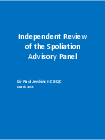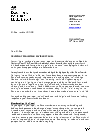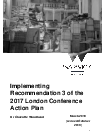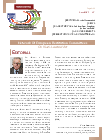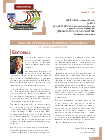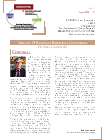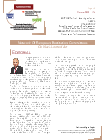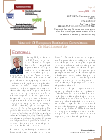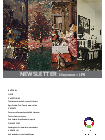Spoliation Advisory Panel
The Panel resolves claims from people, or their heirs, who lost possession of cultural property during the Nazi era, which is now held in UK national collections.
The Secretary of State may designate a Spoliation Advisory Panel (“the Panel”) to consider claims from anyone (or from any one or more of their heirs) who lost possession of a cultural object during the Nazi era (1933-1945), where such an object is (a) now in the possession of a UK national collection, or (b) in the possession of another UK museum or gallery established for the public benefit. A Panel may also be designated to advise about any claim for an item in a private collection at the joint request of the claimant and the owner.
Its proceedings are an alternative to litigation and its recommendations are not legally binding on any parties. However, if a claimant accepts the recommendation of a Panel and the recommendation is implemented, the claimant is expected to accept this as full and final settlement of the claim.
Members
Chairs
- Rt Hon. Sir Donnell Deeny is a former Lord Justice of Appeal in Northern Ireland, a mediator and arbitrator.
- Rt Hon. Sir Alan Moses, is a former Lord Justice of Appeal and a former Chairman of the Independent Press Standards Organisation
Deputy chairs
- Professor Sir Richard Evans, Regius Professor Emeritus of History, University of Cambridge
- His Honour Judge Baumgartner, a Circuit Judge of England and Wales
Members
-
Christopher Baker, Hon. Professor at Edinburgh University and holding a number of non-executive roles and trusteeships.
-
Professor Miranda Fricker FBA FAAAS, Julius Silver Professor of Philosophy, New York University, and Honorary Professor University of Sheffield
-
Martin Levy FSA, Chairman, H Blairman and Sons Ltd, dealer in furniture and works of art
-
Peter Oppenheimer, Student, i.e. Fellow, Emeritus of Christ Church, Oxford, and former President of the Oxford Centre for Hebrew and Jewish Studies
-
Anna Southall, ex-director of the National Museums & Galleries of Wales and former CEO of the Museums Libraries and Archives Council. Former Vice Chair of Wales Millennium Centre. Former Chair of Arnolfini, Bristol
-
Oliver Urquhart Irvine MVO, Executive Director, Programmes and Collections, Royal Institute of British Architects
Terms of Reference
Terms of Reference updated in 2016.
Rules of Procedure
Rules of Procedure updated in 2016
Guidance for the Parties
The following guidance notes have been prepared in order to assist the parties in formulating their case for the Panel’s consideration and to enable the Panel to process the claim expeditiously.
Current claims
The Spoliation Advisory Panel is currently considering claims for:
- A painting by Henry Gibbs in possession of Tate Britain.
Panel Reports
Please refer to the Spoliation Advisory Panel document collection to access the panel’s previous reports.
Review of the Spoliation Advisory Panel
A short independent review was carried out from December 2014 - February 2015 out into the Spoliation Advisory Panel by Sir Paul Jenkins KCB QC as part of the regular and ongoing government programme to review public bodies and ensure they continue to operate effectively.
You can read his report and the government response below.
Spoliation Conference 2017 - ‘70 Years and Counting: The Final Opportunity?’ Note of Proceedings
The following is a note of the Conference ‘70 Years and Counting: The Final Opportunity?’ which took place at the National Gallery, London on 12 September 2017. The note was prepared by the Department for Culture, Media and Sport and represents our record of the conversations. Any questions in relation to the note and/or proposed amendments should be addressed to mark.caldon@dcms.gov.uk
Disclaimer: The views and opinions expressed in this note are those of the Conference speakers and unless stated otherwise, do not reflect the official policy or position of the Department for Culture, Media and Sport and the UK government. Neither is the department responsible for the accuracy in the reporting of the views expressed at the Conference.
Spoliation Conference Action Plan
The following recommendations were proposed by the four discussion panels at the London Spoliation Conference in September 2017.
The restitution committees of the United Kingdom, Austria, France, Germany and the Netherlands are considering the recommendations relating to their work and an update on this and the wider issues considered in the Action Plan will appear here in due course.
Following the 2017 London Conference, the representatives of the restitution committees of the UK, France, Germany, Austria and the Netherlands met in London in October and agreed to create a permanent working group to promote closer engagement and improved information sharing between the committees. The committees have already begun to address the recommendations in the Conference Action Plan and the establishment of the working group will provide a focus for continuing this work. Further details of the working group will be announced in due course. November 2018.
Paper by Dr Charlotte Woodhead, commissioned by DCMS, which looks at the differences in process between the 5 European restitution committees and addresses Conference recommendation 3.
UK joins network of European countries to increase cooperation on returning Nazi-looted art
The UK and four European countries are forming a new network to increase international cooperation around returning art looted by the Nazis.
Arising from the London Spoliation Conference in 2017, the Spoliation Advisory Panel and restitution committees of France, Germany, Austria and the Netherlands have come together to form a Network of European Restitution Committees.
The French committee, La Commission pour l’indemnisation des victimes de spoliations, which celebrates its 20th anniversary in 2019, will lead the Network during its first year.
The Network will enable greater collaboration and information sharing between the committees.
Some key actions already agreed are the publication of a guide on the work of the five committees, aimed at heirs and claimants, the meeting of a working group in the spring and the organisation of a further international conference at the end of the year.
